|
Getting your Trinity Audio player ready...
|
Are we ready to transition into a more digitalized Philippines?
This was one of the hottest topics discussed at the Fintech Alliance PH’s INDX Summit 2022, where thought leaders in the fintech and banking world gathered to talk about the digital transformation of the Philippines—along with its issues, impacts, and innovations.
Government officials like Bangko Sentral ng Pilipinas Governor Felipe Medalla, Department of Finance Secretary Benjamin Diokno, National Economic and Development Authority (NEDA) Undersecretary Rosemarie Edillon, Department of Health Undersecretary Enrique Tayag, as well as leaders from the private sectors like Jose Antonio Tan III, Eugene S. Acevedo, Shailesh Baidwan, Martha Sazon, and Jean-Marc Arbogast, were all present on the stage of the INDX Summit, held at Enderun Tent, McKinley Hill, Taguig City on November 22 – 23.
Day one of the event featured many topics, but the most controversial was the panel discussions around the Philippines’ digital transformation and inclusion, and the future of education in the country.
Philippines’ transition to a more digitalized economy
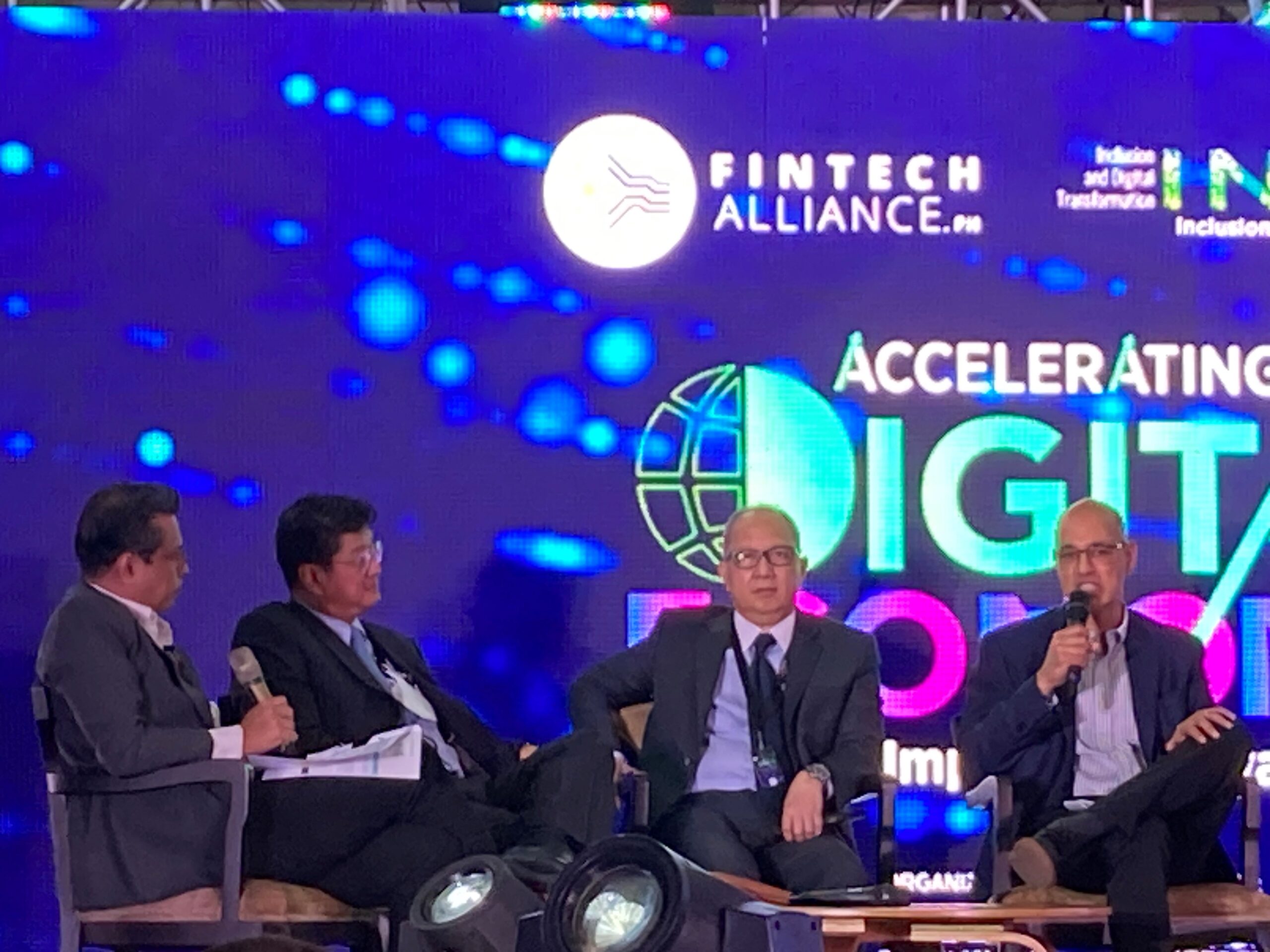
With the young, tech-savvy population of the Southeast Asian country—which has already been titled as the SMS and social media capital of the world—digitalization should not come as a foreign topic. The question is, who should lead the digital transformation of the Philippines—the government or the private sector? And what are the indicators that it’s already digitalized?
Jose Antonio Tan III, director of the Southeast Asia Department at Asian Development Bank; Eugene Acevedo chairman of Asian Bankers Association and President & CEO of RCBC; Shailesh Baidwan, group president of Voyager Innovations and Maya Philippines, and co-founder of Maya Bank; Usec. Rosemarie G. Edillon, undersecretary for Policy & Planning, National Economic & Development Authority; Martha Sazon, president & CEO of GCash; and Jean-Marc Arbogast, country manager of International Finance Corporation I World Bank Group, looked into these points at the “Philippines Through Digital Transformation and Inclusion,” panel moderated by One News and Asia Regional Adviser Roby Alampay.
Alampay started the discussion by asking a huge question about who should lead the country’s digitalization. The audience got a chance to participate as well through an interactive survey. Results from the survey showed that the government should lead such transformation. However, for the panel, it should be a partnership from both the private and government sectors.
After sharing their thoughts regarding the issue, Alampay asked about the indicators of why the Philippines is not there yet when it comes to digital transformation.
Sazon knew this was a setup question and optimistically answered that the Philippines is already progressing digitally. She even shared with the panel how even panhandlers knew how to use GCash, and talked about the digital tools that could help Filipinos going forward.
“Lending for the underserved. You need to give people the means to progress,” Sazon said.
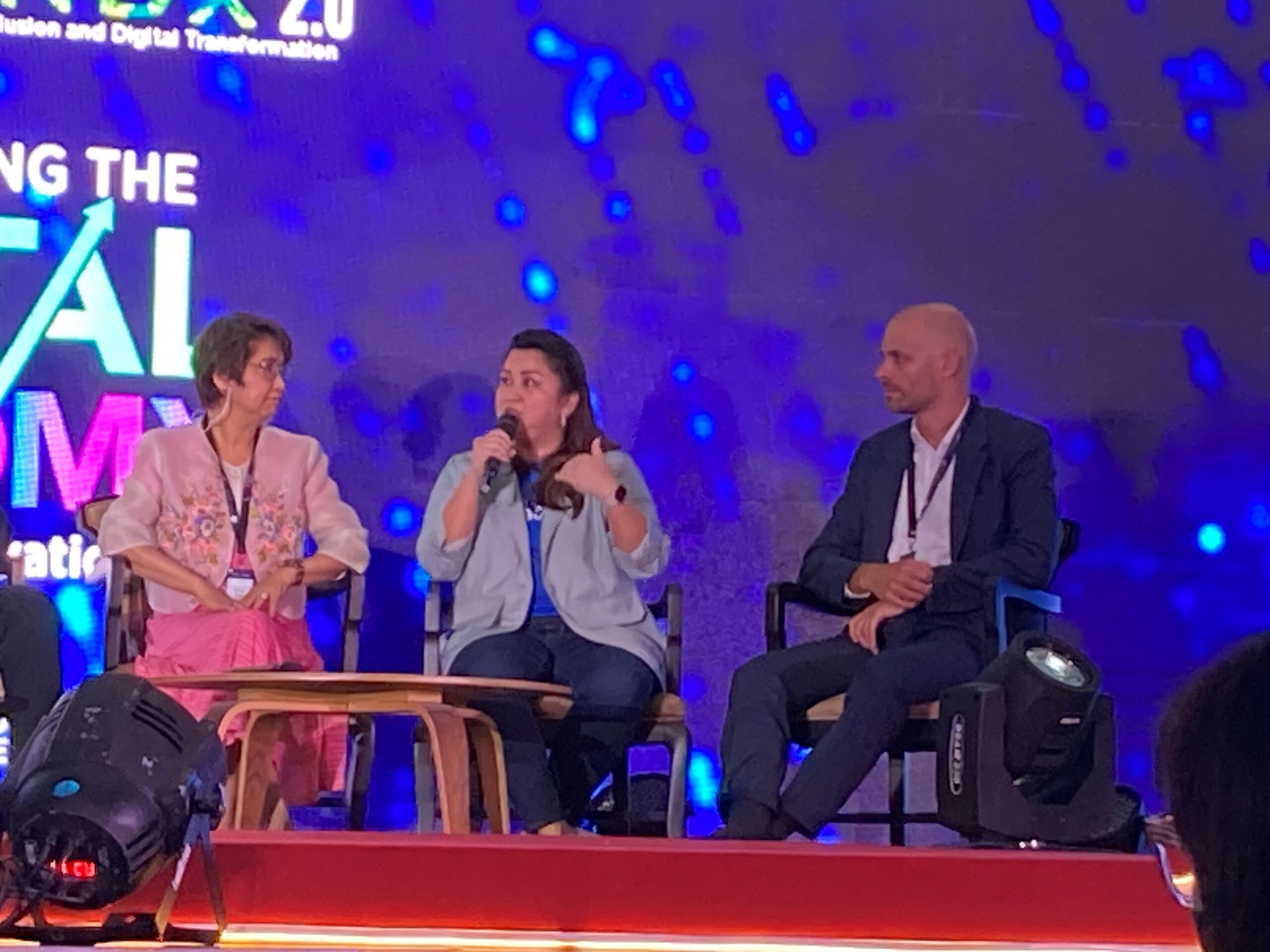
As for Arbogast, the one stopping this movement is the lack of infrastructure, while Baidwan says the country’s government and private companies should focus more on educating the Filipinos first.
“Most people are looking for a genuine means to expand through digital transformation,” Baidwan said.
Commenting on the issue, newly appointed BSV Blockchain Ambassador and nChain’s Country Director for the Philippines Nicholas King, who also attended the INDX Summit, says that the Southeast Asian country is now in a huge adoption phase, with massive adoption on social media. However, there are still some things that could be improved, primarily with the dependency of Filipinos on paperwork when making any government transactions.
“I can’t believe the amount of paperwork you have to produce every time you make a single transaction with the government,” King tells CoinGeek on the sidelines of the event. “The blockchain can get rid of all these paper processes.”
https://twitter.com/BSVBlockchainer/status/1594883303580250112
Filipino education: Struggles and opportunities
Pre-pandemic, there were a lot of different issues about Filipino education, but one of the most appealing was the lack of space in a classroom. According to The Guardian post, Batasan National High School, a public school in the Philippines, has resorted to running two shifts to accommodate its 18,638 students. Meaning the class hours are divided into two, like taking a morning shift and a night shift at work.
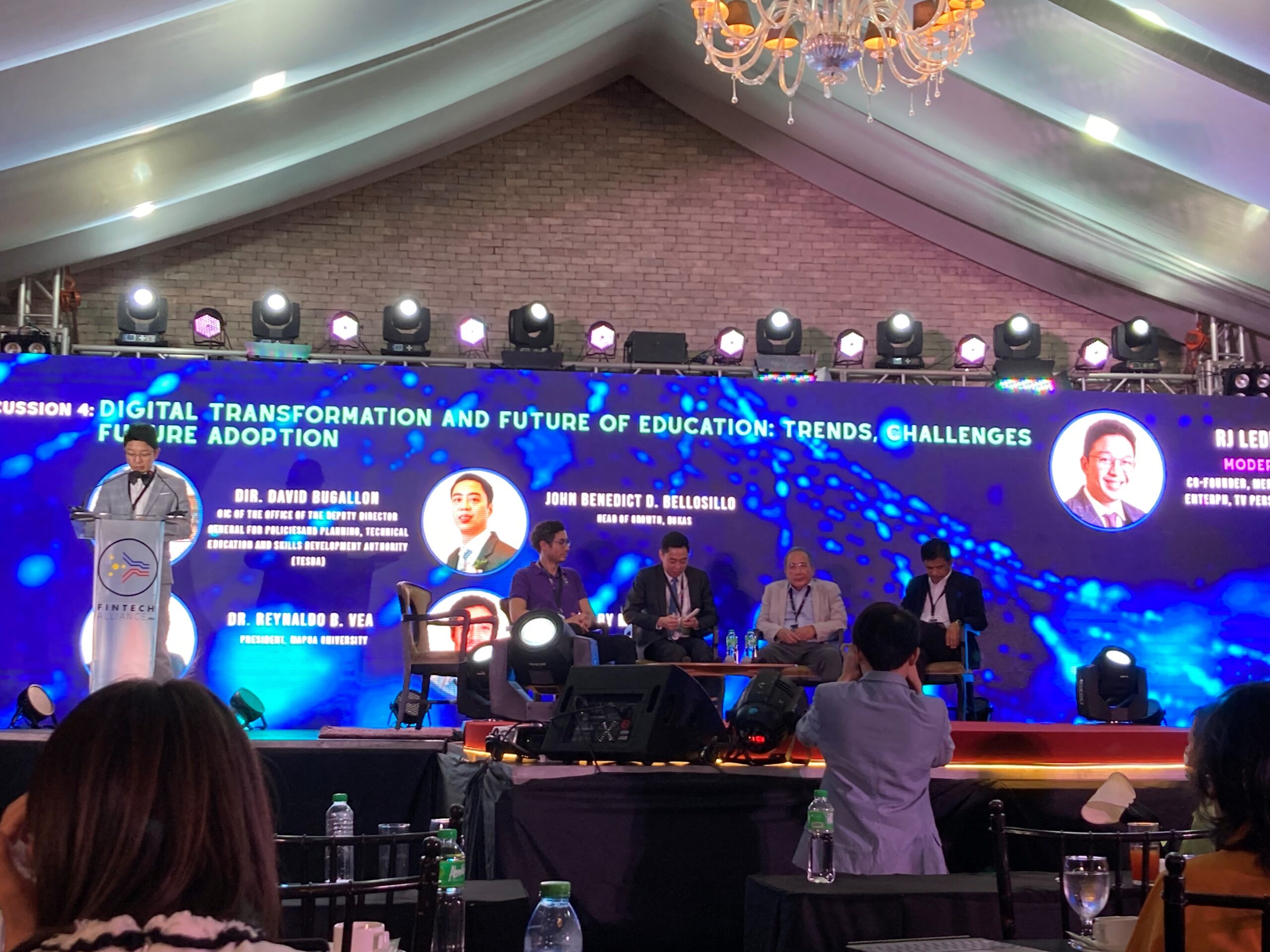
The country’s large youth population puts tremendous pressure on the education system. Still, more issues are plaguing the system, such as poor facilities, insufficient funding, quality of teachers, program materials, and accessibility. These were tackled by the “Digital Transformation and the Future of Education: Trends, Challenges, Future Adoption” panel.
For Henry Motte-Muñoz, the founder and chief strategy officer of Edukasyon.ph, the biggest problems are transparency, sense of urgency, and expectations.
While John Benedict Bellosillo, head of growth at Bukas, disclosed the key difference in education between Indonesia vs. the Philippines, revealing that Indonesia aims for a more skills-based education while the Philippines is more degree-focused.
“The landscape is very different, and of course, the market there is three times bigger than what we have,” Bellosillo noted. “We’re clear with the problem that we want to solve. We’re very clear that we want to make sure every Filipino has a chance to have a quality private education and start to build up their career to uplift their families from poverty,” John reiterated.
The panel discussed “blended learning,” a hybrid setup that was introduced because of COVID-19. This learning approach combines traditional in-person classes and online-based educational materials.
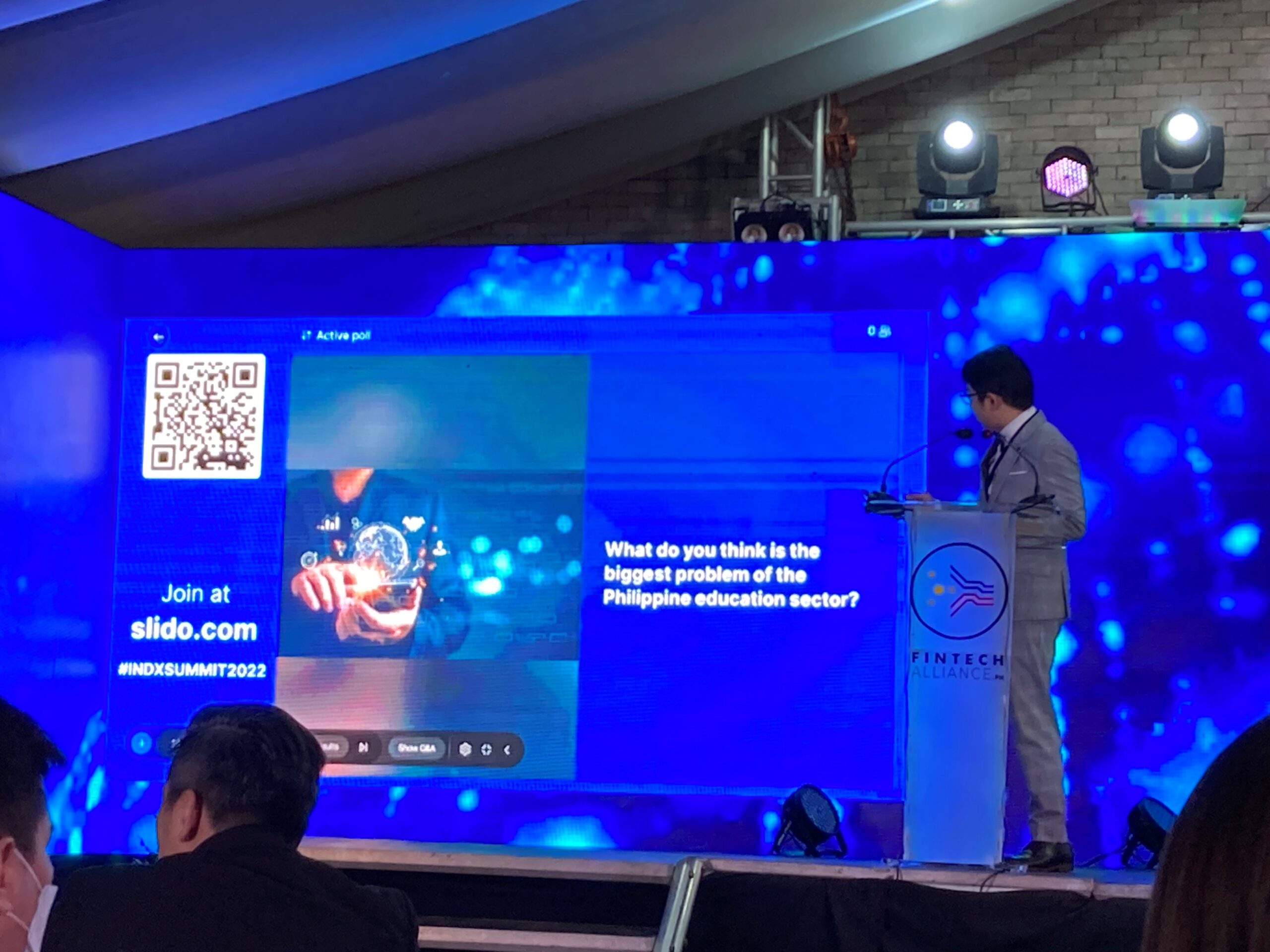
For some, like Dir. David Bugallon, OIC of the tech office of the deputy director general for policies and planning at TESDA, this setup works as the Philippines is still coping with the effects of the pandemic. However, internet connectivity is still an issue, especially in rural areas.
“One important thing in the design of this blending learning is the determination indicators. We have what we call the learning outcomes. So in the process, we have some achievement charts, and until these learning outcomes for every module are addressed, then we can say that the learning progress is achieved,” Bugallon explained.
President of Mapua University, Dr. Reynaldo Vea, agreed that blended learning is the way to go, but institutions should determine the execution. He added that the government could make everything sent digitally, but with the rural areas, the problem is signal, and, for him, that needs to be resolved first.
“There are lessons that are best done online and face to face,” Dr. Vea remarked.
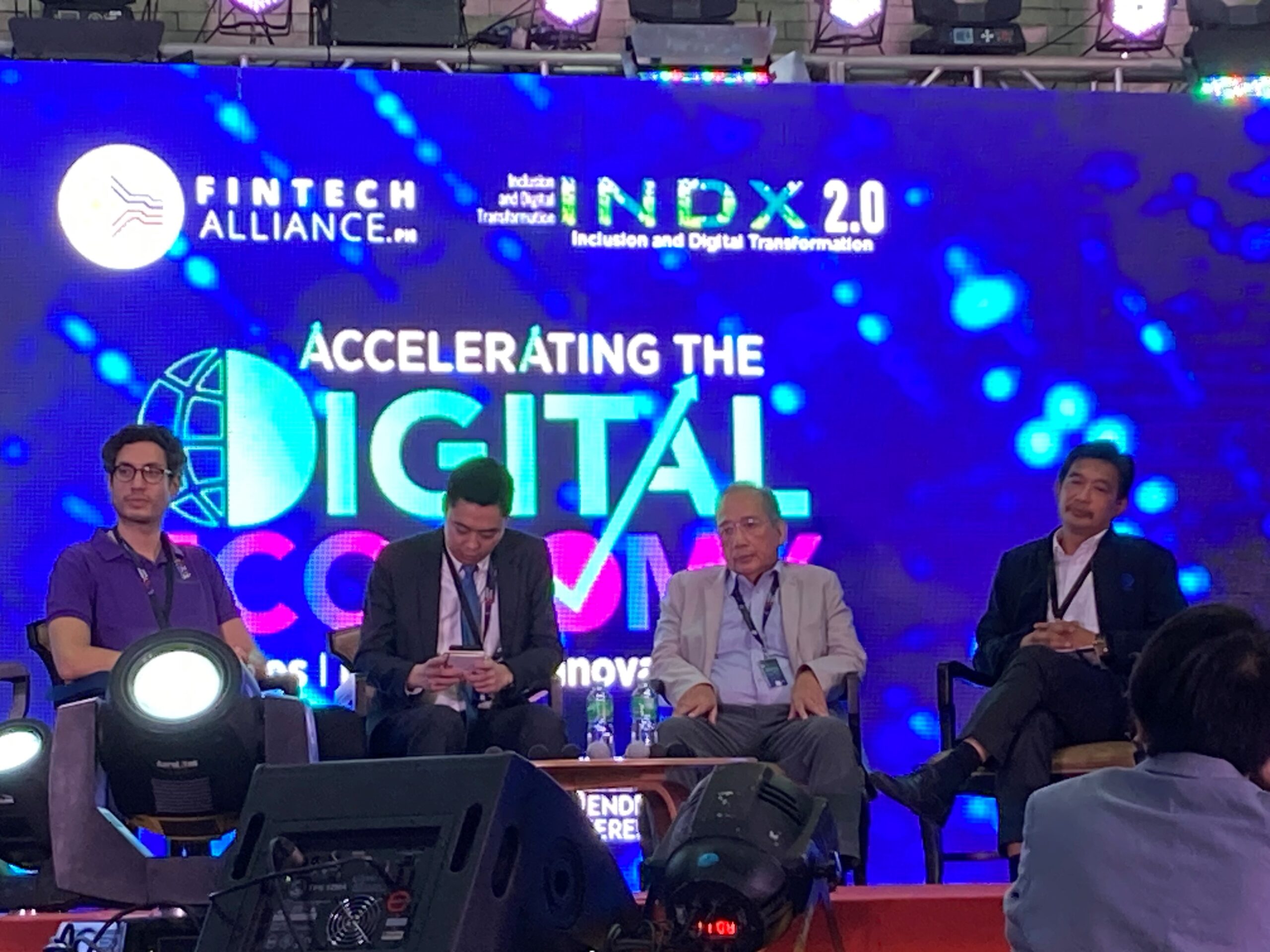
Bugallon added that instead of considering continuing face-to-face education, we should recognize that the students today are smarter than the students of the past. “Our learning process should be learner-centered instead of teacher-centered,” he pointed out.
On his thoughts regarding the matter and as a father of four children, King said that education shouldn’t be digitalized, especially not for the kids.
“The kids need social interaction. They need to develop interpersonal skills, and you can’t do that through digitizing the process,” he said, noting that this could be done for adults taking online courses or higher education. “I think education can be digitized for adults, as they might already be in a workforce..and blockchain can help by enabling online testing and distributing certificates.”
Speaking about online courses, King encourages everyone who wants to learn more about emerging technologies like the blockchain and digital currencies to visit the Bitcoin SV Academy.
Watch: Philippine Web3 Festival press conference: How PH leads the way in helping define innovation

 02-27-2026
02-27-2026 




